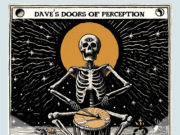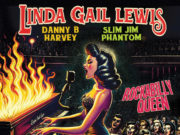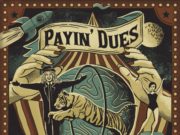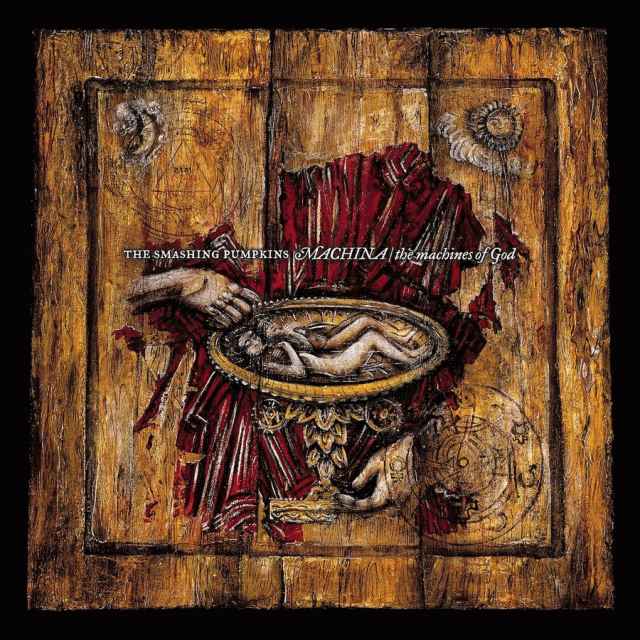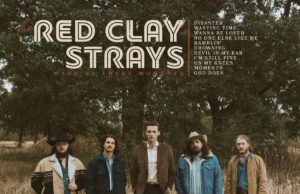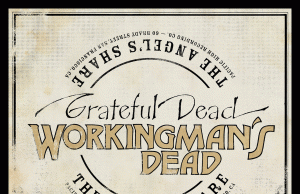Two decades ago, new albums from Smashing Pumpkins, Marah, Rollins Band, Warren Zevon and others were spinning away in my portable CD player. Here’s what I had to say about them back then (with some minor editing):
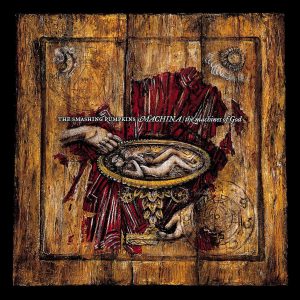 Smashing Pumpkins
Smashing Pumpkins
Machina | The Machines Of God
“You know I’m not dead,” whines Billy Corgan at the opening of The Everlasting Gaze, the leadoff track from Smashing Pumpkins’ new disc. Not dead, you say? You coulda fooled me, Billy boy. OK, that’s a little harsh. But, hey, let’s be real: The chrome-domed Corgan and his Chicago bandmates were not exactly living la vida loca at the turn of the millennium. Their touring keyboardist OD’d and died; they sacked drummer Jimmy Chamberlin for his role in the whole sordid affair; and finally — and perhaps, most relevantly — their last album, the bleak and ballad-sodden Adore, was deader on arrival than the last Bush disc.
So what’s an ego-driven, control-freak rock star to do? Well, to the ever-manipulative Corgan — who reportedly released the Pumpkins’ first album on an indie label specifically to generate street cred for the band, which already had a major-label deal — it must have seemed simple, really: just plug the guitars back in, get the drummer back in the band and start acting like an indie-rock club band again. All of which the Pumpkins have done for Machina | The Machines Of God. But frankly, Corgan’s machinations don’t quite work. Yes, the snarling guitars and mosh-ready grunge of first single Everlasting Gaze — not to mention the equipment-trashing video — are a glimpse of the Billy of old. The Billy of Siamese Dream and Bullet With Butterfly Wings. The Billy who sang, “Despite all my rage, I am still just a rat in a cage.” Nope, Everlasting Gaze isn’t the problem. The problem is that there are 14 other tunes on Machina — and not one is even half as good.
Chiefly, that’s because Everlasting Gaze notwithstanding, Corgan is not the Billy of old. Somewhere around the time of Mellon Collie and the Infinite Sadness, it seems he lost that rage and turned from angry young rocker to tortured, pampered artiste. And he gradually stopped writing traditional rock songs and began churning out increasingly pretentious gunk. His delusions of grandeur are in full effect once again on Machina. Just in case the title isn’t enough of a giveaway, there’s the lyrics: An incomprehensible glob of pseudo-mystical, religious mumbo-jumbo about romance and redemption, sin and salvation, death and rebirth. It’s so convoluted even the ever-contradictory Corgan can’t seem to keep it straight. First, he’s not dead; then, later, he is; then he wants to live; then he wishes for death. Hey Billy, either renew the magazine subscription or call Dr. Kevorkian, OK?
Musically, Machina is just as wishy-washy. Corgan’s plugged his guitar back in but he appears to have forgotten what to do with it. Actual riffs are few and far between; instead, there’s song after song of droning, buzzy sludge and layer upon layer of overdubs. Once again, the sweeping, overwritten ballads and arty numbers far outweigh the rockers. And the production is the final nail in the coffin; Machina sounds as if everything’s been wrapped in gauze. Chamberlin’s busy drums are buried in the mix; Corgan’s already-thin and nasal vocals are dry and underproduced. The cumulative effect makes Machina’s 73-minute running time a tedious affair that feels longer than the two-disc Mellon Collie. If Corgan really wants to refresh the great Pumpkins, he’s going to have to find that rage once again — and remember what that guitar is really for.
 Marah
Marah
Kids in Philly
It’s nigh on impossible to describe Marah’s Kids in Philly without mentioning Bruce Springsteen’s Greetings From Asbury Park, N.J. Partly because Marah (Ma-RAH) singer Dave Bielanko is something of a vocal dead-ringer for a young Boss, and partly because this quartet’s breezy, harmonica-and-organ roots-rock pays more than a passing nod to the old E Streeters. But mainly it’s because like Asbury Park, Kids in Philly is a near-perfect album that marks the arrival of a world-class talent. There’s no weak link in Marah’s chain: Not in the gorgeous lyrics, which sparkle with a dark, street-poet romanticism; not in the music, which also harkens back to The Faces‘ scrappy pub rock and Van Morrison’s blue-eyed soul transcendence; and certainly not in the Chuck Berry-ish R&B of Christian St., the heartbreaking Vietnam war ode Round Eye Blues and the greasy Delta twang of Catfisherman. This is one of those discs that puts a grin on your mug, sends shivers down your spine and lodges in your CD player for weeks. My only quibble: at 37 minutes, it’s way too short. Expect to see Kids in Philly on plenty of year-end critics’ lists — including mine.
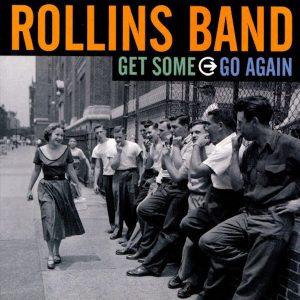 Rollins Band
Rollins Band
Get Some Go Again
Rollins Band? Or Thin Lizzy? On his powerful, fiery new disc, cranky Renaissance punk Henry Rollins gets in touch with his inner rock star — and damned if it doesn’t turn out to be his long-time idol Phil Lynott. Teaming up with L.A. rock trio Mother Superior, Rollins shelves the proggy art-punk of recent years, cranks up the amps and issues his hardest-rocking set since his days fronting Black Flag — not to mention the first album on which he actually sings instead of just bellowing. I’m not kidding about that Thin Lizzy comparison, either. Between his raspy bark and the band’s wah-wah-soaked, twin-guitar riff-rock, Get Some Go Again could be called The Boys Are Back In Town Again — and They’re Pissed Off. (A sizzling cover of Lizzy’s Are You Ready? with Scott Gorham on guitar doesn’t hurt things either.) For those who miss the spoken-word, Liar-era Rollins, there’s the final unnamed track, with Henry delivering one of his long-winded anti-Hollywood rants over a funky jam with MC5 axeman Wayne Kramer. For those who don’t miss those days, it’s a treat to hear Hank kick out the jams again.
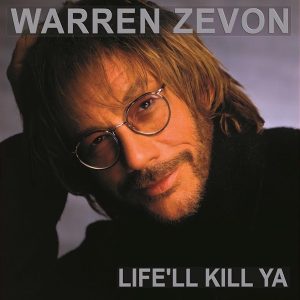 Warren Zevon
Warren Zevon
Life’ll Kill Ya
Back in the late ’70s, Warren Zevon wrote Werewolves of London, his biggest (OK, his only) hit single. It may have been the best thing that happened to him — and the worst. Ever since, he’s seemed torn between trying to live up to it and trying to live it down. And he’s been saddled with the handle Quirky Novelty Tunesmith instead of the one he deserves — Great American Songwriter. The reality that fate has not been kind to Mr. Bad Example is once again made painfully clear on the grandly bleak, wonderfully twisted Life’ll Kill Ya, his welcome return to the studio after five years. In keeping with its fatalistic shrug of a title, Life is another magnificently crafted therapy session featuring Warren’s biting, mordant tales of missed boats, screwed-up loves and blown chances, from the masochistically upbeat folk-jangle I Was in the House When the House Burned Down to the most ironic cover of Back in the High Life Again you’ll ever hear. Sure, behind the cynical, self-defeatist smirk, the heart of a hopeless romantic bleeds all over Zevon’s elegant piano lines and delicate acoustic guitars. When it comes to putting those feelings into words, though, Warren’s idea of a love song often remains — thankfully — a tune like Hostage-O: “All you have to do is ask,” he croons. “I’ll put on the creepy mask.” Can he get an Ah-oooooooh?
https://youtu.be/7dBfwGX_3I8
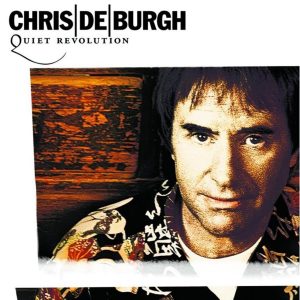 Chris De Burgh
Chris De Burgh
Quiet Revolution
Zzzzzzzzzzzzzzzzzzzzzzzzzzzzzzz zzzzzzzzzzzzzzzzzzzzzzzzzzzzzzz zzzzzzzzzzzzzzzzzzzzzzzzzzzzzzz zzzzzzzzzzzzzzzzzzzzzzzzzzzzzzz zzzzzzzzzzzzzzzzzzzzzzzzzzzzzzz zzzzzzzzzzzzzzzzzzzzzzzzzzzzzzz zzzzzzzzzzzzzzzzzzzzzzzzzzzzzzz zzzzzzzzzzzzzzzzzzzzzzzzzzzzzzz zzzzzzzzzzzzzzzzzzzzzzzzzzzzzzz zzzzzzzzzzzzzzzzzzzzzzzzzzzzzzz zzzzzzzzzzzzzzzzzzzzzzzzzzzzzzzzzzzzzzzzzzzzzzzzzzzzzzzzzzzzzz zzzzzzzzzzzzzzzzzzzzzzzzzzzzzzzzzzzzzzzzzzzzzzzzzzzzzzzzzzzzzz.
 Tracy Chapman
Tracy Chapman
Telling Stories
A few years back, Howard Stern’s celebrity-stalking guerrilla reporter Stuttering John asked Tracy Chapman, “Are you still in show business?” Ouch. Still, it’s not like she does much to disprove it. After the hits Fast Car and Talkin’ ‘Bout a Revolution from her 1988 debut, Chapman hasn’t exactly burned up the pop charts. And the drab Telling Stories — her first disc in five years — won’t change that. In contrast to the sultry vibe of 1995’s hit single Give Me One Reason, these 11 low-fat latte meditations are quietly intimate and introspective. And, with the exception of the slightly groovy title track, pretty lifeless. Chapman can still craft a smooth, sweetly flowing melody; what she needs to remember is how to engage an audience. That is, if she wants to silence Stuttering John.
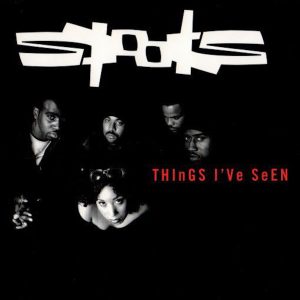 Spooks
Spooks
Things I’ve Seen
This U.S. hip-hop quintet like to play coy about where they’re from. By the sound of this first single, I’d guess Philadelphia. Things I’ve Seen has a moody midtempo groove that recalls The Roots. Vocalist Ming-Xia has the dusky, hauntingly sexy delivery of Erykah Badu on You Got Me (OK, I know Badu is from Dallas, but you get the idea). One of the emcees (who include Booka-T, Water Water, Hypno and J.D.) even sounds like a grittier, funkier Will Smith. Have I guessed their hometown right? Who knows. And really, who cares? If their full album (due in May) is half as enticing as this, they can say they’re from Walla Walla if they want.
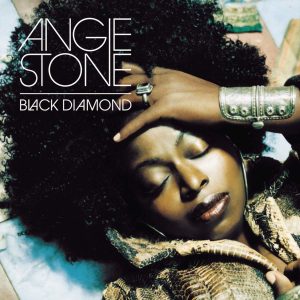 Angie Stone
Angie Stone
Black Diamond
Soul divas haven’t had it so good since the ’60s. Ever since Lauryn Hill’s Miseducation taught the music biz about the bankability of female hip-hop, the hunt is on for the next Grammy winner and money spinner. Will it be Kelis? Macy Gray? Well, it might be Angie Stone. A former vocalist for Lenny Kravitz, songwriter for Mary J. Blige and squeeze of D’Angelo, Stone steps into the solo spotlight with Black Diamond, an album that exhibits the influence of all her former collaborators. Like Blige, she has strong, confident pipes — a rich, soul-kiss contralto. Like D’Angelo, she uses them to inject a sultry vibe into a set of old-school, slow-grind grooves and electric-piano jazz-funk (including a cover of Marvin Gaye’s Trouble Man). And like Kravitz, she has the brass to pull off lines like “Love junkie / So damn funky / Stone cold monkey / I can’t get offa my back.” With that going for her, Stone may be worth her weight in gold.
 DJ Me DJ You
DJ Me DJ You
Rainbows & Robots
Don’t get me wrong; I love Beck and the Beastie Boys. But for my money, Odelay and Paul’s Boutique both owe a big chunk of their DNA to the wonderfully brain-fried tracks of L.A. producers The Dust Brothers. Anybody who shares my love for their brand of cut-‘n’-paste kitsch — and would love to hear it uncluttered by vocals — should give DJ Me DJ You a spin. Ross Harris and Craig Borrell run in the same Silver Lake circles as the Dust bros (they’re in avant-lounge quartet Sukia on the Brothers’ label, while Borrell does artwork for their releases). And they likely shop at the same used equipment and CD stores; like their recent EP Simplemachinerock, Rainbows and Robots shares the Brothers’ love of bizarro samples, Atari effects and bumptious, hip-hop rhythms, sliced and diced with the skill of a mohel into a crazy-quilt cartoon soundtrack. With all that going on, who needs vocals?
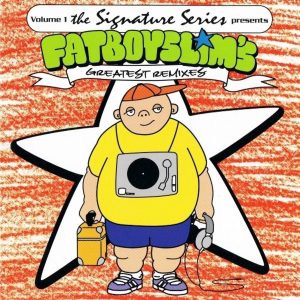 Fatboy Slim
Fatboy Slim
Greatest Remixes
There’s a good reason Norman Cook’s alter-ego Fatboy Slim is king of the DJs — for a guy who doesn’t actually play his own music, he still has a sound and style all his own. This CD is the rock-solid evidence. Greatest Remixes, true to its title, collects 10 Fatboy reworkings of tunes by an equal number of clubhoppers. But whether he’s tweaking Renegade Master’s Wildchild, Stretch ‘N’ Vern’s Get Up! Go Insane!, or Mighty Dub Katz’s Magic Carpet Ride, Cook hijacks the track and brands it with his instantly identifiable sonic trademarks — stuttering repetition and ADD jump-cuts, trippy kaleidoscopic arrangements and sugar-buzz tomfoolery. Even on somebody else’s songs, he’s the funk soul brother. Check him out now.
 Femi Kuti
Femi Kuti
Shoki Shoki
Following in the footsteps of a famous father can be no easy task — just ask Frank Sinatra Jr. and Julian Lennon. Or Femi Kuti, son of Nigerian legend Fela Kuti. Not only did Fela literally invent a style of music — Afrobeat, a fusion of simmering James Brown funk, African highlife and big-band jazz — but his radical politics and anti-government stance also turned him into a folk hero on the level of Bob Marley by the time of his death from AIDS in 1997. Big shoes to fill? You’d never know it from Shoki Shoki, Femi’s assured and accomplished third solo effort. Building on the same Afrobeat base of his father (whose band he led for several years), Femi jacks up the funky drums and chicken-scratch guitars to world-beat party speed, creating an exuberant, hypnotizing backdrop for his Maceo Parker-style sax lines, enthusiastic vocals and Afrocentric positivity. Like most sons, he doesn’t surpass his famous father. But unlike a lot of them (Hank Jr., take note) he doesn’t shame him either.
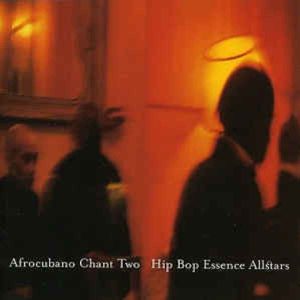 Hip Bop Essence Allstars
Hip Bop Essence Allstars
Afrocubano Chant Two
If imitation really is the sincerest form of flattery, the Buena Vista Social Club’s ears are burning. Ever since their acclaimed album, every jazz band that could round up a set of timbales and learn a traditional melody has been lining up to ride their coattails. The latest is the 18-member Hip Bop Essence Allstars, led by Argentine saxman Gato Barbieri. They’re The Monkees to the Buena Vista’s Beatles, the AHTeens to their Abba, the ‘N Sync to their Backstreet Boys. Which is not to say that these Latin-tinged modern jazz offerings don’t deliver the goods ; Barbieri has embraced Latin music to varying degrees over his lengthy career, and cohorts like pianist Bob James and percussionist Larry Frantangelo have the chops to make these tracks jump and jive as if they all were raised in Havana. But they weren’t — and like it or not, that’s sort of the point, isn’t it?
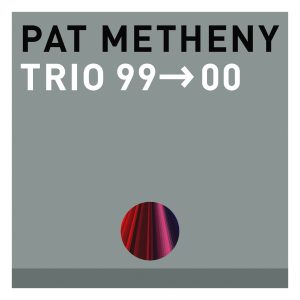 Pat Metheny
Pat Metheny
Trio 99 -> 00
Guitarists are the Rodney Dangerfields of jazz — next to the horn players, they get no respect. Even when they do, it doesn’t mean much. (Sure, everybody’s heard of Django Reinhardt, but how many folks own one of his albums?) One exception is Pat Metheny, whose vibrant, recognizable sound and adventurous approach have earned him arena-sized popularity and critical acclaim.The quietly swinging Trio 99 -> 00 is, as usual, a change of pace — a return to the trio format for only the third time in his 25-year career. Three is not a crowd here; tastefully flamboyant drummer Bill Stewart and rock-solid bassist Larry Grenadier give Metheny plenty of room to weave his delicate, spiderwebby runs and chord bursts. At times, it’s a bit restrained — particularly on their cover of John Coltrane’s Giant Steps, where you wait in vain for them to cut loose. But even at his noodliest, Metheny never loses your respect.
 Chris Standring
Chris Standring
Hip Sway
Guitarists tend to be gunslingers — always trying to be the fastest, the smoothest, the flashiest. Guitarists who make their own albums are often even worse. Which is why L.A. axeman Chris Standring is such a surprise. Instead of riding roughshod over his songs and spraying the place with leads, he lays back, emphasizing feel over fireworks. With the breezy, light touch of George Benson, Standring bubbles and glides his way through a baker’s dozen selections of light, funky jazz. He could use a bit of help when it comes to cover tunes — The Bee Gees’ How Deep is Your Love and 10CC’s I’m Not in Love are elevator music, period. But even when Standring fails to blow you away, he never totally misses the mark.
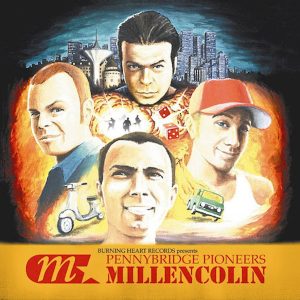 Millencolin
Millencolin
Pennybridge Pioneers
Will the last ska-punk band to jump off the bandwagon please hit the brakes? Last month, Suicide Machines deserted their skanky roots for popcore. Now it’s Swedish foursome Millencolin’s turn to go over the wall. On Pennybridge Pioneers, their fourth disc, the boys chuck the chukka-chukka guitars and frantic polka-beat pace for the melodic punk-pop of Offspring and Bad Religion. Unlike Suicide Machines, though, Millencolin’s shift is less a sellout than an evolution; despite its newfound restraint and musicality, the band retains punk credibility with its endearingly scrappy approach and socially conscious lyrics. And commercial or no, many of these tunes — the choppy No Cigar, the bouncy Fox — are strong, solid songs. They may be off the bandwagon, but Millencolin are on the right track.
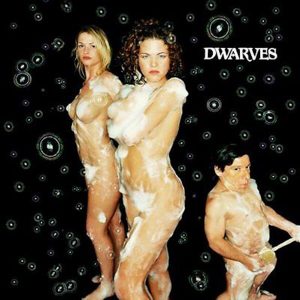 The Dwarves
The Dwarves
Come Clean
Even dwarves, it seems, can grow up. After a decade of self-inflicted wounds, aborted gigs, secret identities and faked deaths, sleaze-punk progenitors The Dwarves (not to be confused with vertically challenged Canuck hair-metallists Killer Dwarves) have indeed continued to clean up their act on Come Clean. As they did on 1997’s Young and Good-Looking, frotnman Blag Dahlia, guitarist HeWhoCannotBeNamed and the rest pick up The Ramones’ punky torch, expanding their repertoire beyond double-time, throat-shredding hardcore thrash with radical elements such as poppy melodies, twangy surf guitars, harmonies and — gasp! — songs longer than 90 seconds. Heck, some tracks could qualify as electronica. (The Dwarves do electronica? Hell has just frozen over.) Of course, they’re still The Dwarves, so there’s the usual heaping helpings of violence, teenage sex and drugs. Even so, after years of being written off as a bad joke, these days The Dwarves can stand tall.
 Mary Timony
Mary Timony
Mountains
When they arrived at the indie-rock banquet, Mary Timony and her band Helium were seated next to Courtney Love, Liz Phair and the other loud, trashy post-grunge gals. Ever since, the eclectic, electrifying singer-songwriter has been playing musical chairs, slowly working her way to Tori Amos’s end of the table. Following in the footsteps of the strangely compelling 1997 disc Magic City, Timony’s eccentric solo debut gets medieval on your ass, as she wanders a fog-shrouded, enchanted woodland of painted horses and poisoned moons, accompanied by Renaissance-fayre minstrels who sometimes trade their fyfes and pypes for squishy Cars synths and rubbery electric guitars. It’s a long way from the black magic of ’95’s The Dirt of Luck, but she’ll put a spell on you nonetheless.
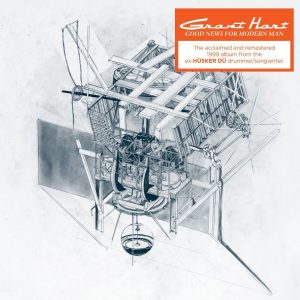 Grant Hart
Grant Hart
Good News For Modern Man
Alongside Bob Mould and Greg Norton, drummer Grant Hart pioneered alt-rock in Minneapolis post-punk powerhouses Hüsker Dü. After the trio imploded amid drug abuse and acrimony in ’87, however, Hart seemed lost, content to drift along in a narcotic haze and issue the occasional half-baked disc. But just when you were ready to write him off, he’s back with Good News, a potent work that lives up to its title — and to Hart’s potential. Don’t expect the naked aggression of New Day Rising; Hart’s inspiration here comes not from the ’80s but the ’60s. It’s there in the layered Beach Boys harmonies and surf guitars that wash all over Think it Over Now; in the Tex-Mex Farfisa frat-rock that drives In a Cold House; in the swirly, Animals blues-waltz of Seka Knows. It’s no Zen Arcade, but at least there’s finally a new day rising for one of rock’s unsung heroes.


